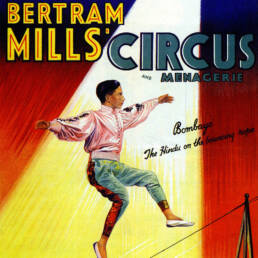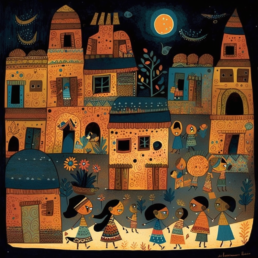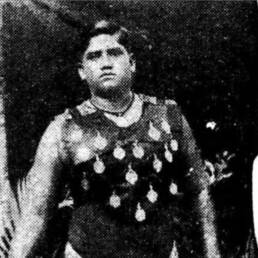On his 56th death anniversary, we look back at the fascinating story of sub-continent first chess superstar. Mir Sultan Khan was born in 1903 in Sargodha of present day Pakistan in a family of religious preachers. His initiation into the game of chess happened at the age of 9 through his father. By the time he was 21, Mir Sultan was acknowledged as the best chess player in the entire Punjab province.
It was around this time Major General Nawab Sir Umar Hayat Khan, a famous Rajput soldier for the Empire & an elected member of the upper legislative house of British Indian administration took notice of him. Himself a chess player of some ability, Sir Hayat was quick to spot Mir Sultan’s talent and made him a member of the Nawab’s household. Here, Mir Sultan was given extensive training in European chess. In 1928, Mir Sultan contested the all-India chess championship and became the champion.
A year later, Sir Hayat took Mir Sultan with him to London. He took part in a training competition but with his limited experience, he finished last. Sir Hayat arranged for two leading British chess masters: William Winter & Frederick Yates to train Mir Sultan for the British Chess C’ships of 1929. To the shock of everyone, Mir Sultan won the championship. But he was unhappy: struggling to adapt to English weather, food & language, Mir Sultan was homesick. Soon, he sailed back to India with Sir Hayat.
However, his mentor convinced him to return & he was back in May 1930. In the coming years, Mir Sultan faced the best chess players of the world and produced a number of stirring results. He won the British championship twice more – in 1932 & ’33. He represented Britain thrice at The Chess Olympiads: Hamburg (1930), Prague (1931) & Folkestone (1933). One of Mir Sultan’s best showing was at Hastings Chess Congress 1930-31 where he finished 3rd behind future world champion Max Euwe & former world champion – the legendary José Raul Capablanca.
However, Mir Sultan’s struggles with the cold weather continued, suffering continuously from colds, influenza and throat infections. Often, he turned up for his matches with his neck swathed in bandages. In December, 1933, he bid Europe a final adieu & returned to India for good with Sir Hayat. Mir Sultan played his last chess match in 1935, winning against VK Khadilkar.
He lived till 1966 when he died from tuberculosis in his native Sargodha. For the last 30+ years of his life, he had no connection with the game he’d enriched so much. In 1950, FIDE first awarded titles of international grandmaster & master. Although few long retired players also received the recognition, Mir Sultan Khan wasn’t considered. Probably it didn’t matter much to him. After all, the great Capablanca, the world champion from 1921-27, had hailed Mir Sultan a “genius.”




